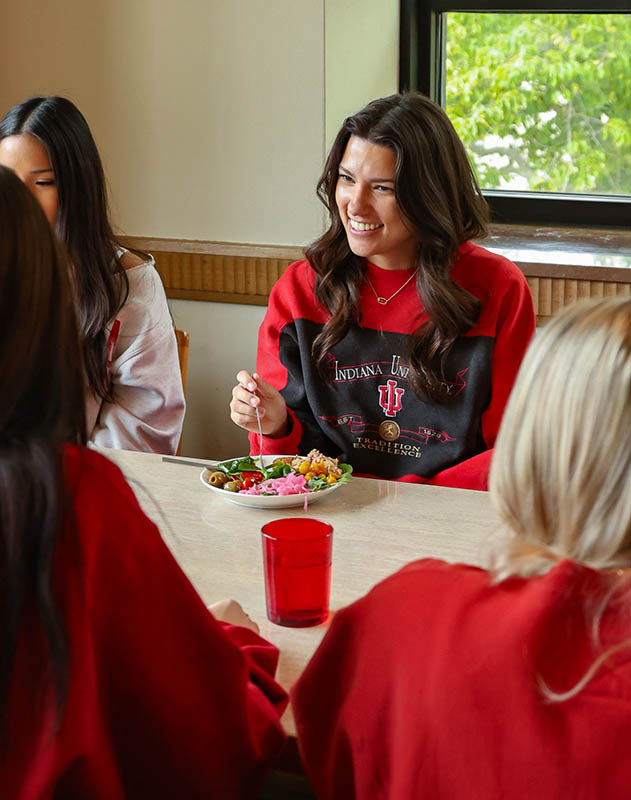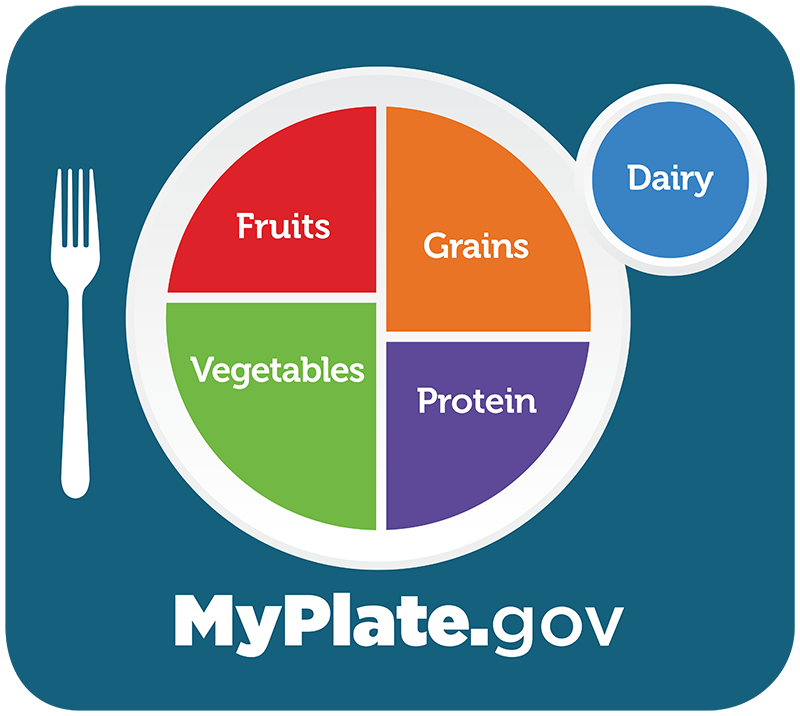 It’s the time of year when delicious seasonal treats pair with cozy gatherings full of great food and even better company. It’s also a great time to make mindful, healthy choices that help you feel your best while still savoring the moments that make the season special.
It’s the time of year when delicious seasonal treats pair with cozy gatherings full of great food and even better company. It’s also a great time to make mindful, healthy choices that help you feel your best while still savoring the moments that make the season special.
Fortunately, IU Registered Dietitian Erin Collicott reassures us that a balanced diet doesn’t have to mean perfection.
“You can enjoy your favorite holiday foods mindfully, without complete avoidance or over-indulgence,” she said. Erin suggests choosing food that feeds the body and mind and eating only until you feel satisfied. Before you head home, here are a few of Erin’s tips for building a balanced meal on campus.
Tips from an IU dietitian
Stay hydrated. Meet your fluid needs with water. Add some fresh fruit from the dining hall to your water bottle for a flavorful twist.
Reduce food waste. Instead of loading up several plates at once, start with a small portion and go back for more. Try samples of dishes from various stations.
Try a twist on your go-to items. You don’t have to give up the foods you love to add variety or nutrients. Try a swap that sounds appealing:
- Plain Greek yogurt instead of sour cream
- Baked or roasted potatoes or sweet potatoes instead of fries
- A black bean burger instead of a hamburger
Take a lap. Walk around the dining hall before filling your plate to see what looks good. A quick loop can spark inspiration or help you discover new favorites.
Shop the concepts. Mix and match foods from different dining concepts to create a meal that fits your needs.
 Whole foods on every plate. Stop by the salad bar to include colorful vegetables, seeds, or fruit for extra flavor, crunch, and fiber.
Whole foods on every plate. Stop by the salad bar to include colorful vegetables, seeds, or fruit for extra flavor, crunch, and fiber.
Choose lean proteins. Grilled chicken, turkey, beans, or tofu can help you stay full and energized.
Include whole grains. Look for multigrain or whole wheat options at The Clubhouse or Scratch Café (both at Wright, McNutt, and Forest) for added texture and heartiness.
Set gentle goals that stick
Creating new habits works best when your goals are gentle, realistic, and clear. That’s where SMART goals come in: Specific, Measurable, Achievable, Realistic, and Timely. These goals help you take small, sustainable steps toward balance and build confidence as you see your progress.
For example: “Three days a week during lunch (timely, achievable, realistic), I will visit the salad bar (specific) and add at least one (measurable) whole food to my plate.”
Small steps like this add up. Erin said that over time, you’ll find that balance isn’t about strict rules—it’s about making choices that leave you feeling good, focused, and satisfied.
“Especially around the holidays, food often connects us with traditions and people we love, which can be just as nourishing as the food itself.”


